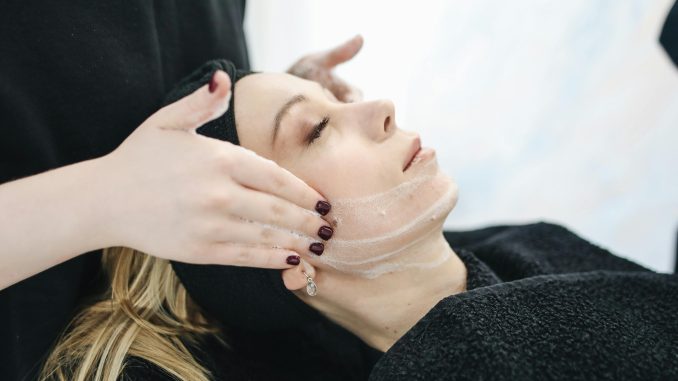
Skincare is a vital aspect of personal hygiene and beauty that involves caring for the skin to maintain its health, appearance, and texture. Here’s an overview of skincare, including key components and practices:
- Cleansing: Cleansing is the first step in any skincare routine and involves removing dirt, oil, makeup, and other impurities from the skin’s surface. Cleansers come in various forms, including foaming cleansers, gel cleansers, cream cleansers, and micellar water. It’s essential to choose a cleanser that suits your skin type and effectively removes impurities without stripping the skin of its natural oils.
- Exfoliation: Exfoliation involves removing dead skin cells from the skin’s surface to reveal smoother, brighter skin underneath. This can be done using physical exfoliants, such as scrubs or brushes, or chemical exfoliants, such as alpha hydroxy acids (AHAs) or beta hydroxy acids (BHAs). Exfoliation helps unclog pores, prevent breakouts, and improve skin texture.
- Moisturizing: Moisturizing is essential for keeping the skin hydrated, nourished, and protected. Moisturizers help maintain the skin’s moisture barrier, prevent water loss, and soothe dry, irritated skin. There are various types of moisturizers available, including creams, lotions, gels, and serums, formulated for different skin types and concerns.
- Sun Protection: Sun protection is crucial for preventing sun damage and premature aging of the skin. Daily use of sunscreen with broad-spectrum SPF helps protect the skin from harmful UV rays that can cause sunburn, wrinkles, age spots, and skin cancer. It’s essential to choose a sunscreen that offers adequate protection and reapply it regularly, especially when spending extended periods outdoors.
- Treatment Products: Treatment products target specific skin concerns, such as acne, hyperpigmentation, fine lines, and wrinkles. These may include serums, treatments, and spot treatments formulated with active ingredients like retinol, vitamin C, niacinamide, or hyaluronic acid. Treatment products can help address individual skin concerns and improve overall skin health.
- Eye Care: The skin around the eyes is delicate and prone to signs of aging, such as fine lines, wrinkles, and dark circles. Eye creams or serums formulated specifically for the eye area can help hydrate, firm, and brighten the under-eye area, reducing the appearance of puffiness and fatigue.
- Healthy Lifestyle Habits: In addition to a skincare routine, maintaining a healthy lifestyle can contribute to overall skin health. Drinking plenty of water, eating a balanced diet rich in fruits, vegetables, and antioxidants, getting enough sleep, and managing stress can all help improve skin quality and appearance from the inside out.
- Consultation with a Dermatologist: For individuals with specific skin concerns or conditions, consulting with a dermatologist can provide personalized recommendations and treatment options tailored to their needs. Dermatologists can diagnose skin conditions, prescribe medications, and perform procedures to address various skin concerns effectively.
Overall, a consistent skincare routine tailored to individual skin type and concerns can help maintain healthy, radiant skin and delay signs of aging. It’s essential to choose skincare products carefully, listen to your skin’s needs, and be patient with your skincare journey for optimal results.
Leave a Reply